CAPABILITIES
CNC Drilling Service
We provide CNC drilling services of any complexity for rapid prototypes and production parts. Start a one-hour quote from a real engineer, and get your parts made as fast as one day.
- Tight Tolerances up to ±0.0005″ (0.012mm)
- Multi-Axis (3, 4, or 5-axis) Drilling
- Works with Aluminum, Steel, Copper, Polymers, etc
- High-Speed and Deep Hole Drilling






All uploads are secure and confidential.
Why Choose Our CNC Drilling Service
Our CNC Drilling Service is second to none regarding precision, speed, and versatility. We offer precision hole placement with the ability to drill variable and precise hole sizes. Our advanced drilling technology allows for high-speed drilling, even in the deepest holes.
Our state-of-the-art multi-axis drilling systems can handle any design, no matter how complex. Whether you’re working with Aluminum, Steel, Copper, or Polymers, our machines are equipped to deliver the highest quality results.
With us, you can expect rapid production times without compromising on quality. Our CNC Drilling Service adheres to tight tolerances up to ±0.0005″ (0.0127mm), guaranteeing you the precision you need for your projects.
Choose our CNC Drilling Service for reliability, precision, and a partner committed to bringing your vision to life.”
How to Order Parts?
Get a free quote from a real engineer; once we receive your design, our engineer will review it and send you a quote as fast as one hour.

Get A Quote Within 12 Hours
Upload your design or email our engineer directly and get your quotes as fast as one hour.

Start Production
Your parts will be made once your orders are confirmed. Besides, you will get real-time order updates of the production status from our order tracking system.

Receive Your Part
After all parts pass QC inspection, they will be well packed from transportation accidents. Then, your custom parts are delivered straight to your doorstep.
CNC Drilling Materials Options
CNC drilling machines can work with a wide range of materials, both metal and non-metal. Here are some of the most common materials below.
Metals
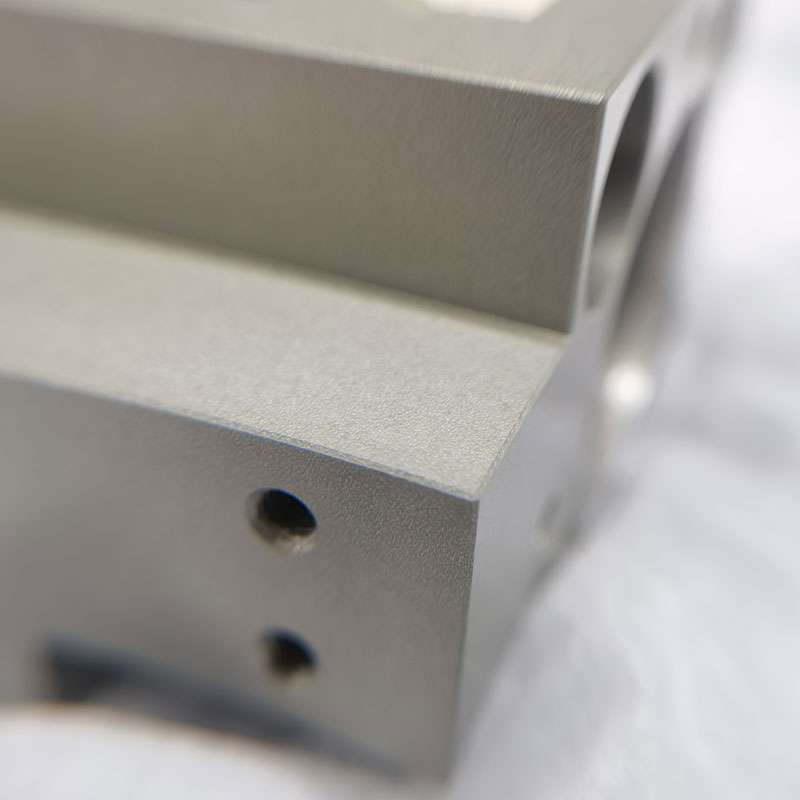
Aluminum
Aluminum is a superior metal in terms of strength-to-weight ratio. It offers High Machinability, ductility, and thermal & electrical conductivity. Parts with aluminium also become highly resistant to corrosion.Alloys
Aluminum (MIC6) Aluminum (2024) Aluminum (5052) Aluminum (5083) Aluminum (6082) Aluminum (6061-T6) Aluminum (6063) Aluminum (7075-T6) Learn more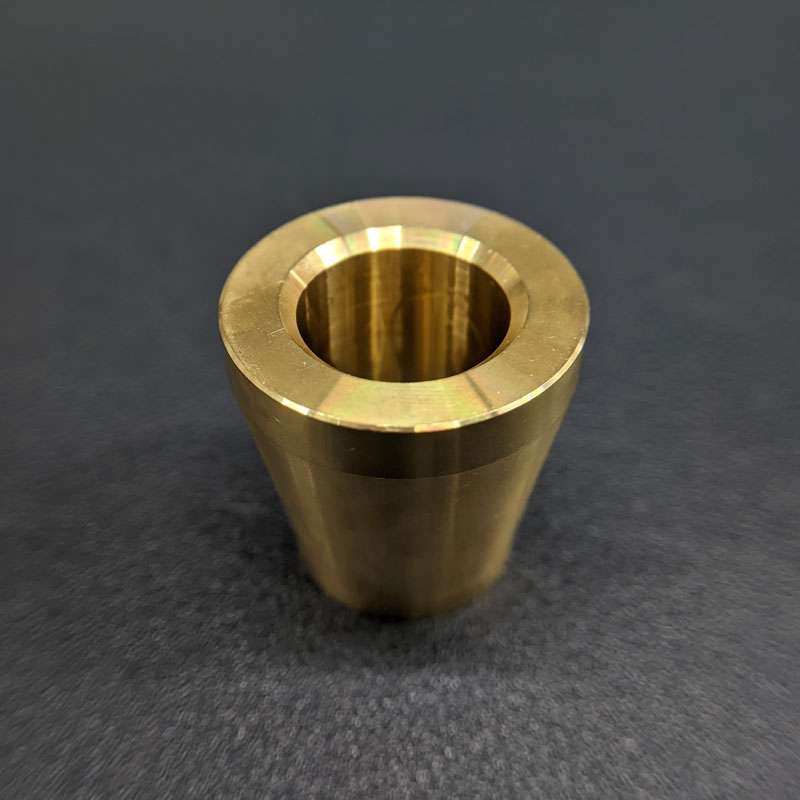
Brass
Golden shiny color, low friction, excellent Machinability, and high electrical & thermal conductivity. Brass can be easily machined and the best choice for low-friction applications.Alloys
Brass (360) Learn more
Copper
It offers good strength, hardness, and excellent corrosion resistance with superior heat and thermal conductivity. It also has a very appealing aesthetic.Alloys
Copper 101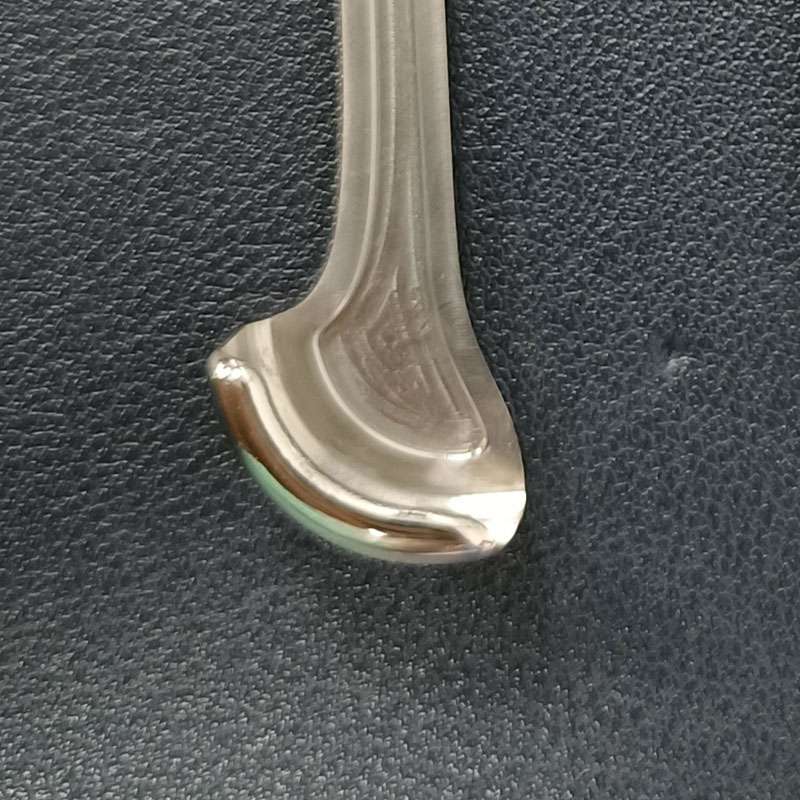
Titanium
40% more strength-to-weight ratio than steel, Excellent corrosion resistance, low thermal expansion, and biologically inert. These properties make it perfect for automotive, aerospace, and medical applications.Alloys
Grade 1 Titanium Grade 2 Titanium Grade 5 Titanium(TC4, Ti6Al4v) Learn more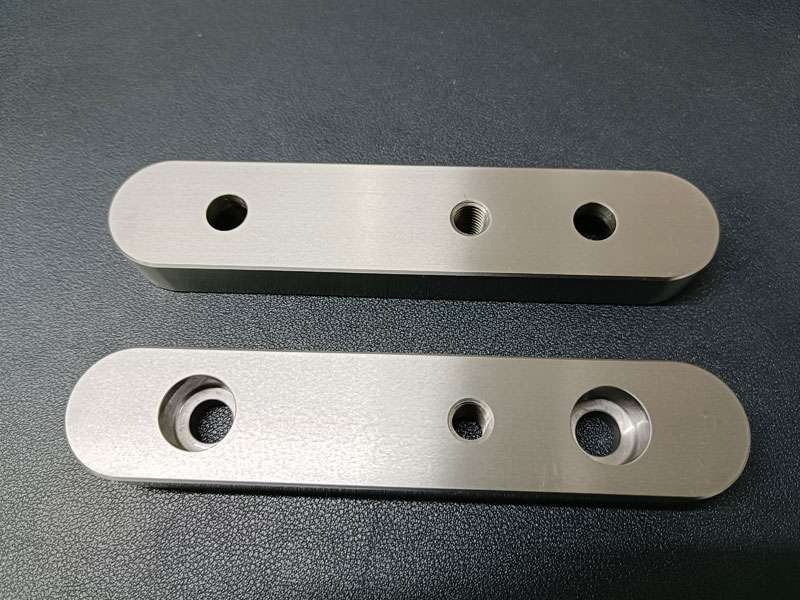
Alloy Steel
High mechanical strength, toughness, resistance to wear and fatigue, and sturdiness. In addition to carbon, other alloying elements can be added depending on the needed mechanical and physical qualities.Alloys
Alloy Steel 4130 Alloy Steel 4340 Steel (4140 Alloy) Steel (1018 Low Carbon) Tool Steel (A2) m2 d2 20GR Zinc-Galvanized Low-Carbon Steel Carbon Steel (1045)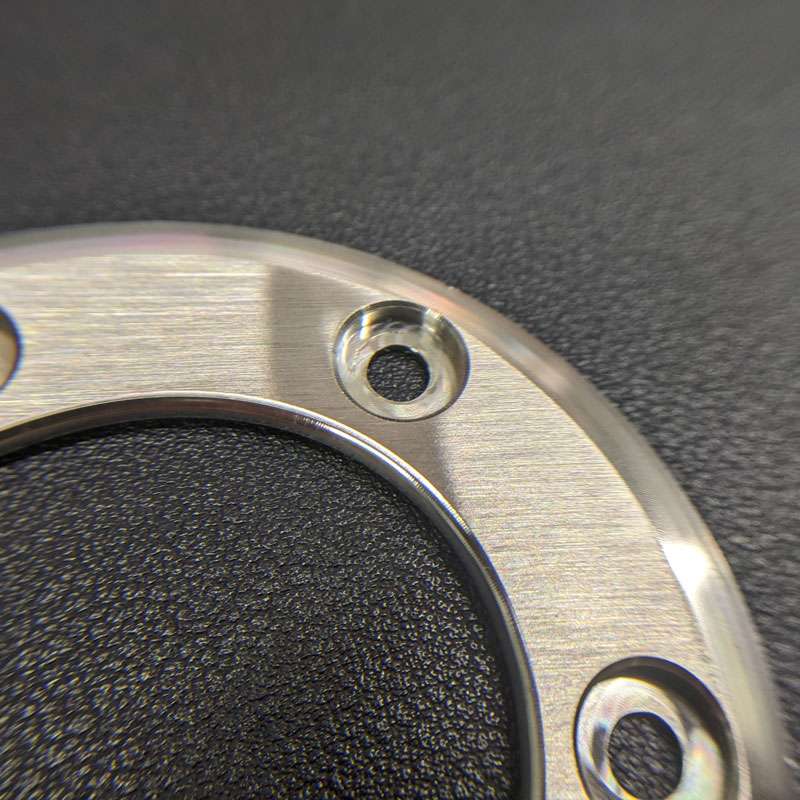
Stainless Steel
High mechanical strength, Thermal, Wear, and Corrosion resistance. Stainless steel is low-cost and can be machined easily. Parts made from Stainless steel are durable and do not lose that strength over time.Alloys
Stainless Steel 201 Stainless Steel 301 Stainless Steel 303 Stainless Steel (304L) Stainless Steel (316L) Stainless Steel (410) Stainless Steel (420) Stainless Steel (440C) Stainless Steel (17-4 PH) Learn more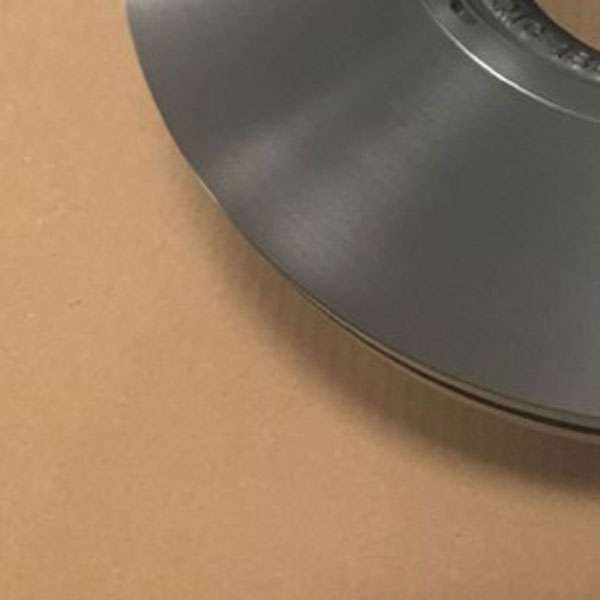
Cast iron
It offers three to five times higher compression strength than steel. Low-notch sensitivity, Good Resistance to deformation, excellent anti-vibration, and consistent mechanical propertiesPlastics
- ABS
- Acrylic
- Delrin
- Garolite G-10
- FR4
- Polyethylene (PE)
- Nylon
- PEEK
- Polycarbonate(PC)
- Polypropylene(PP)
- PPSU(Polyphenylene sulfone resins)
- PPS (Polyphenylene)
- PTFE (Teflon)
- polyetherimide (PEI)
- PMMA (Acrylic)
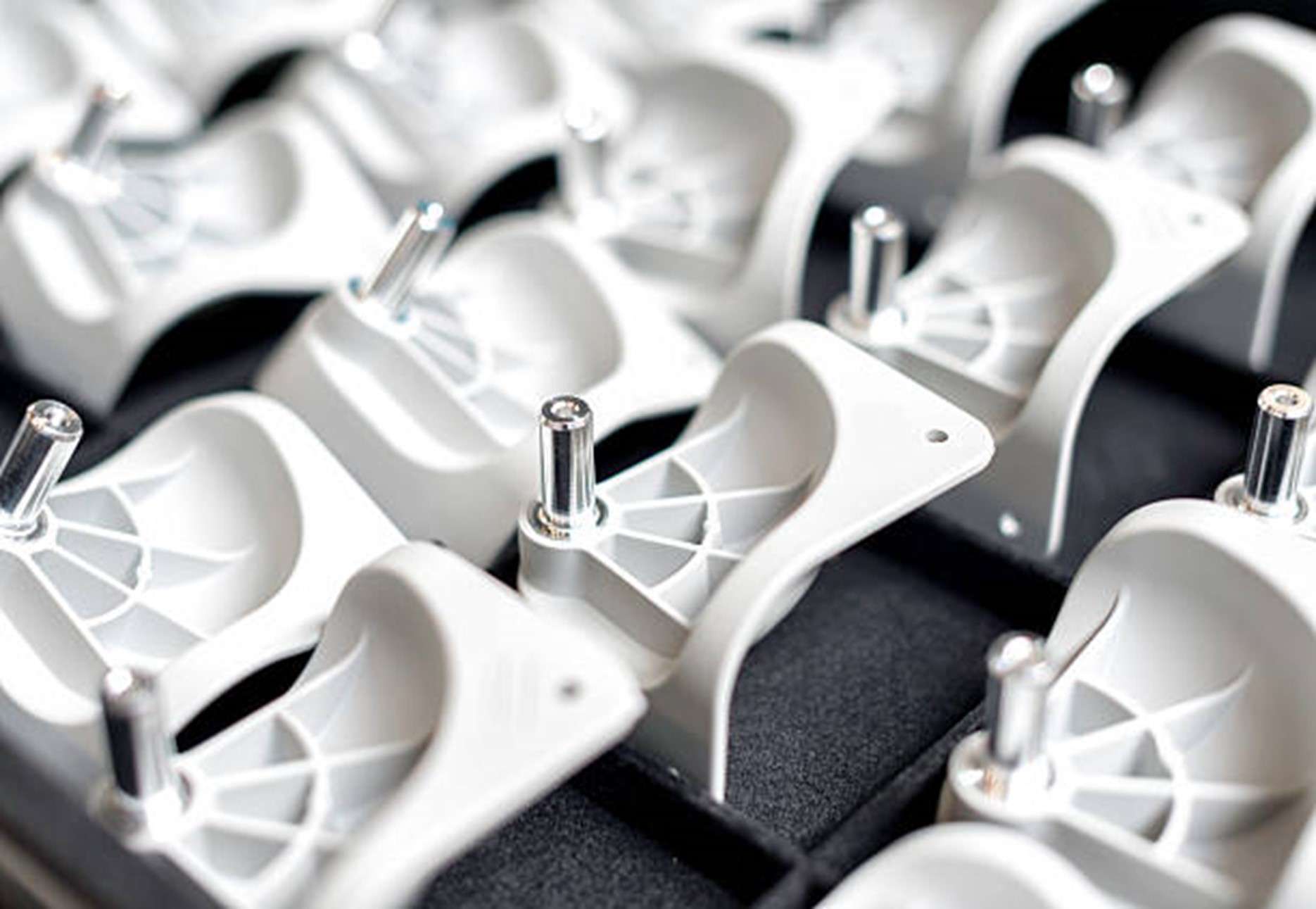
ABS
Excellent strength, extraordinary impact, and abrasion resistance with chemical inertness. ABS can be machined easily and is very easy to paint and glue.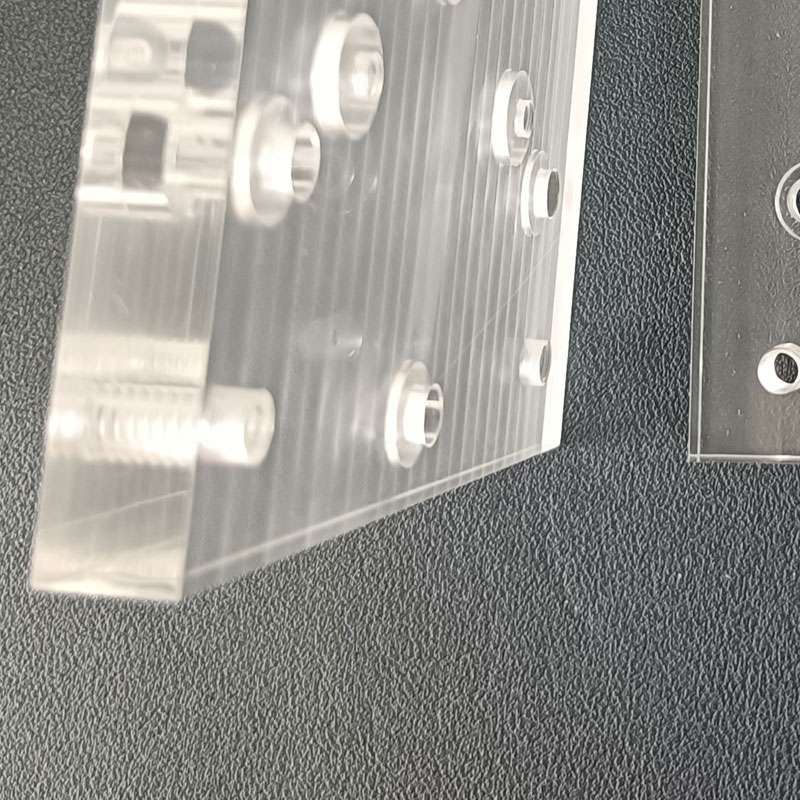
Acrylic
Acrylic is a lightweight, rigid thermoplastic with optical clarity. It is one of the superior alternatives to glass, offering excellent weather and chemical stability.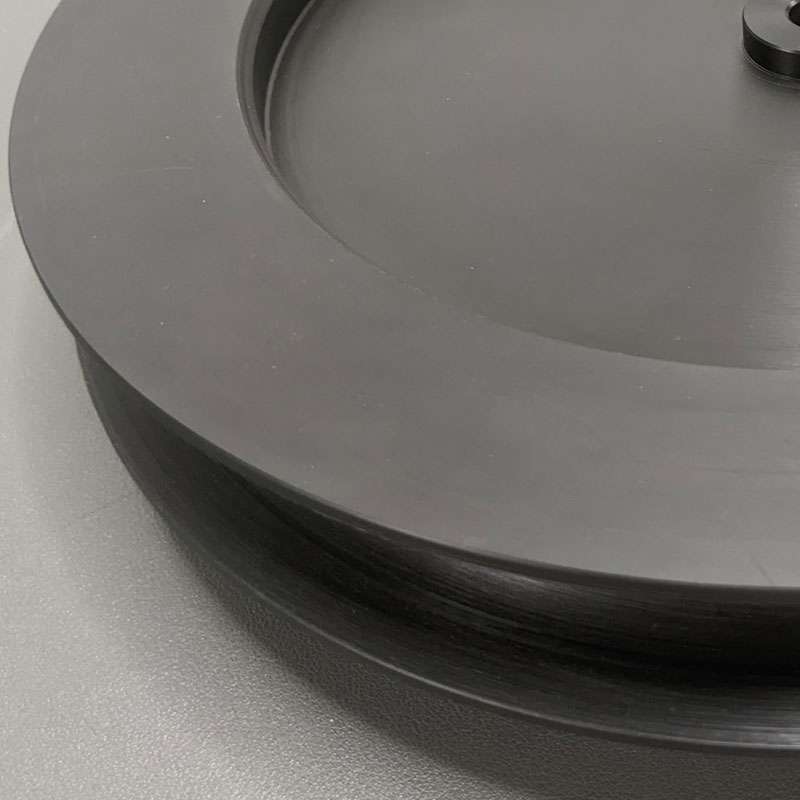
Delrin
High tensile strength, excellent Machinability, Stiffness, wear resistance, creep resistance, and low friction. Overall, Delrin is the ideal replacement for metal.Subtypes
Delrin (30% Glass-Filled)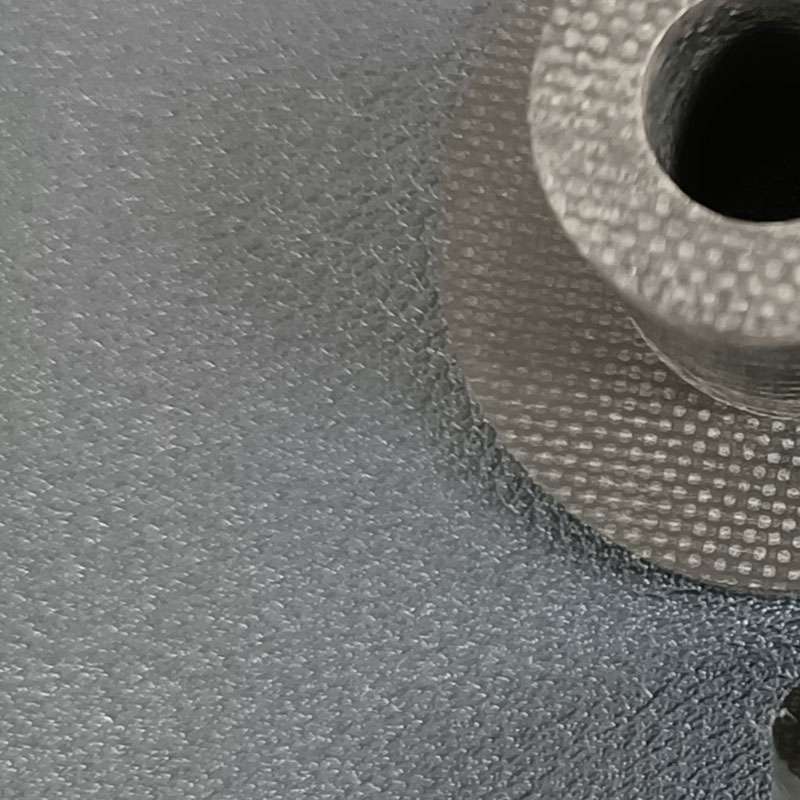
Garolite G-10
High strength-to-weight ratio, fire resistance, low thermal expansion coefficient, and water absorption coefficient are entirely free from corrosion risk. Garolite is perfect for insulating parts and electric circuit boards.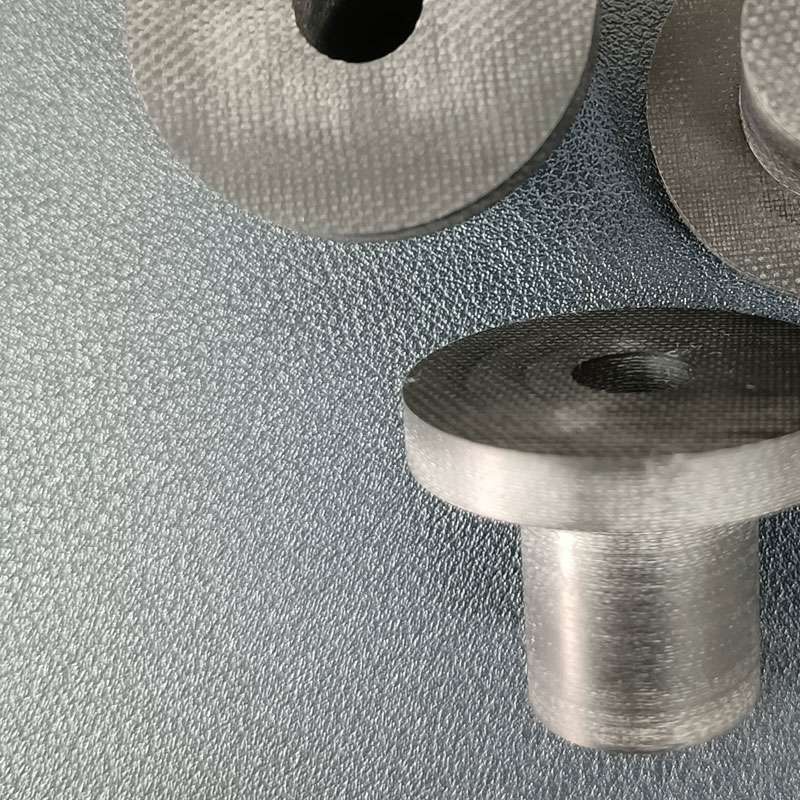
FR4
FR-4 is a manufacturing material with strength almost equal to steel and lightweight. It is a perfect fit for making parts for the electrical marine industry since it is flame retardant, has a negligible water absorption coefficient, and is machinable.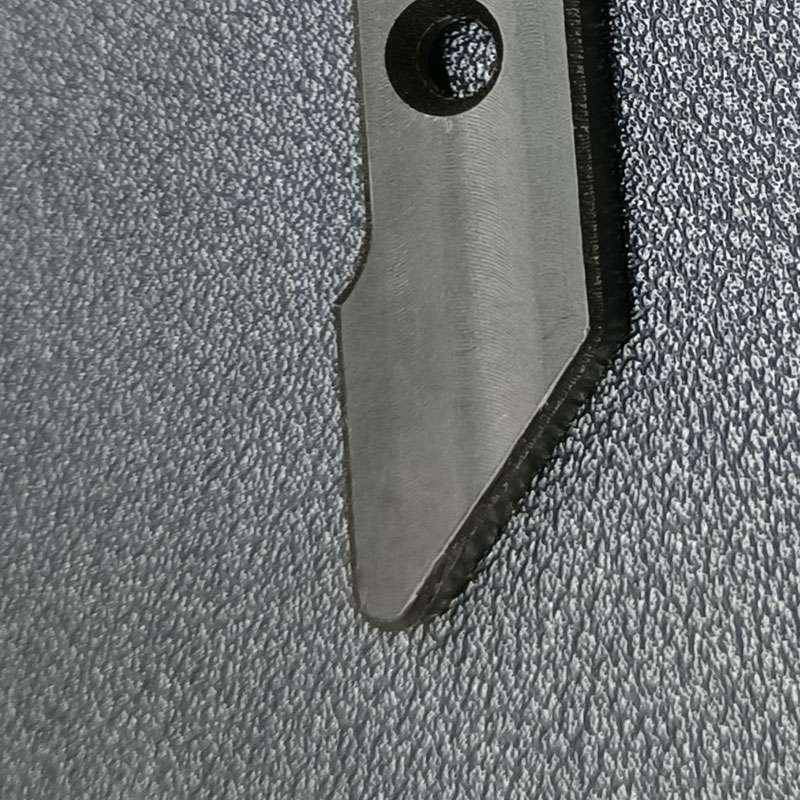
Polyethylene (PE)
Polyethylene is known for its malleable properties. It offers a high strength-to-weight ratio, impact strength, chemical inertness, temperature, and weather resistance.Subtypes
UHMW-PE HDPE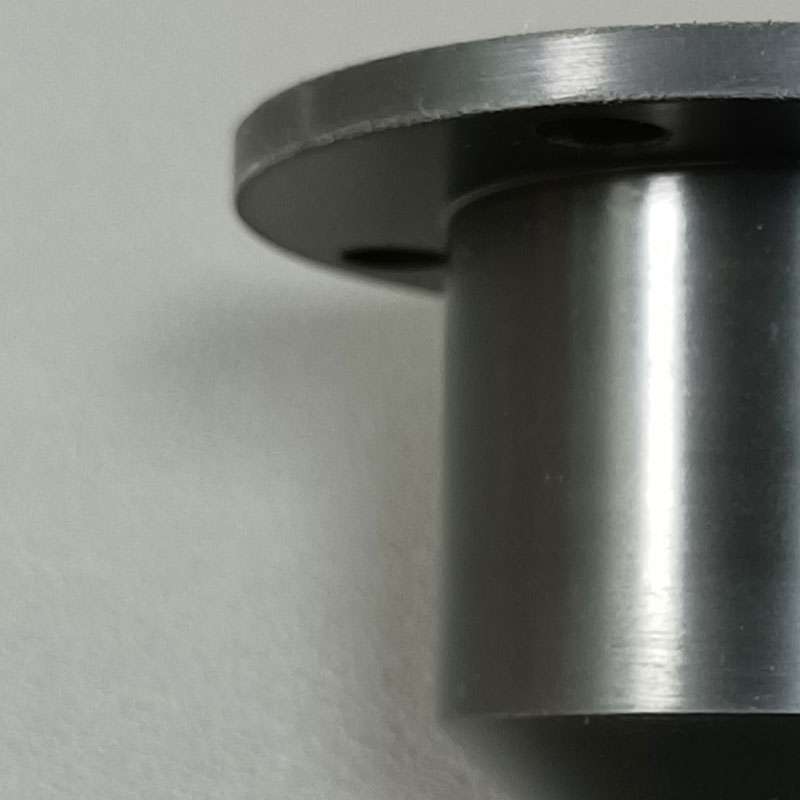
Nylon
Mechanical properties include high resilience, tensile strength, and fatigue resistance. Nylon is a flexible manufacturing material that is highly resistant to abrasion, heat, chemicals, water, and oils.Subtypes
Nylon (30% Glass-Filled)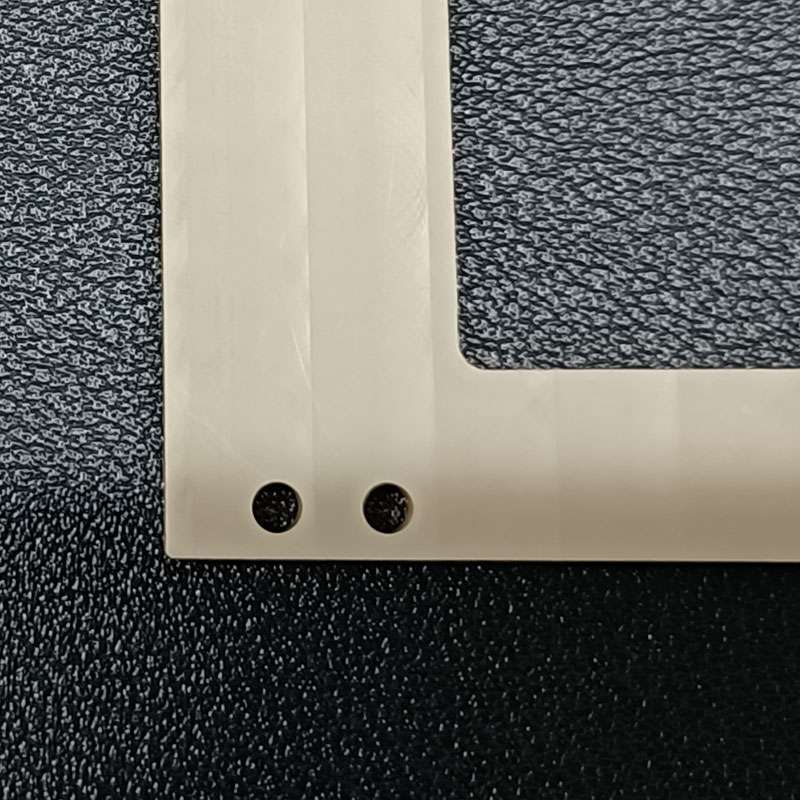
PEEK
A versatile engineering material with high mechanical strength. It provides excellent thermal and chemical resistance. Parts from PEEKS are durable and can be operated at an extensive range of temperatures (up to 2600).Subtypes
PEEK (30% Glass-Filled)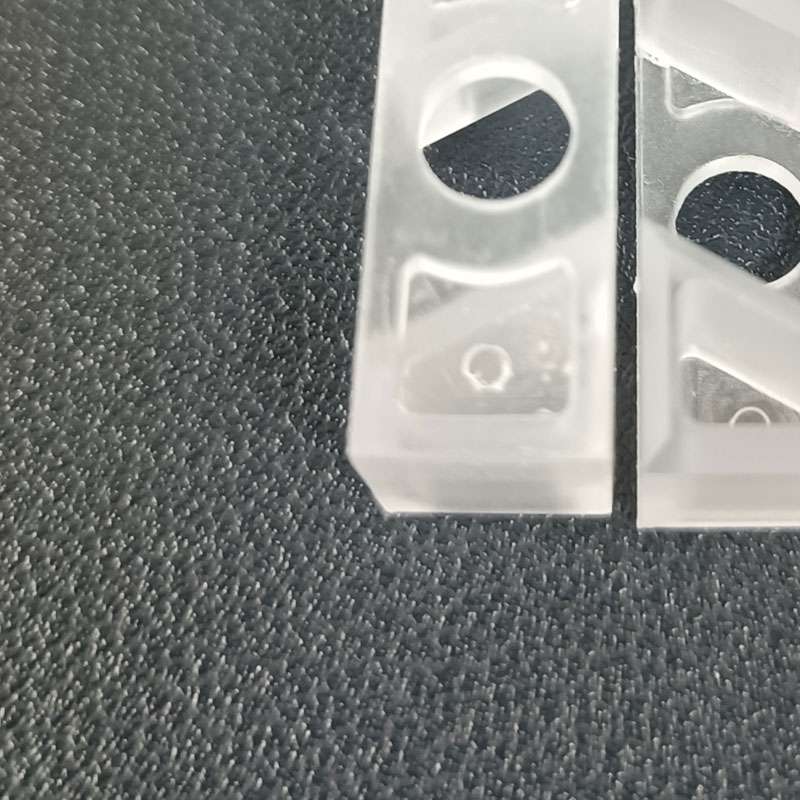
Polycarbonate(PC)
Exceptional mechanical properties, including impact strength, toughness, Stiffness, and creep resistance. Because of its transparent nature, Polycarbonate (PC) is a lightweight alternative to glass. Learn more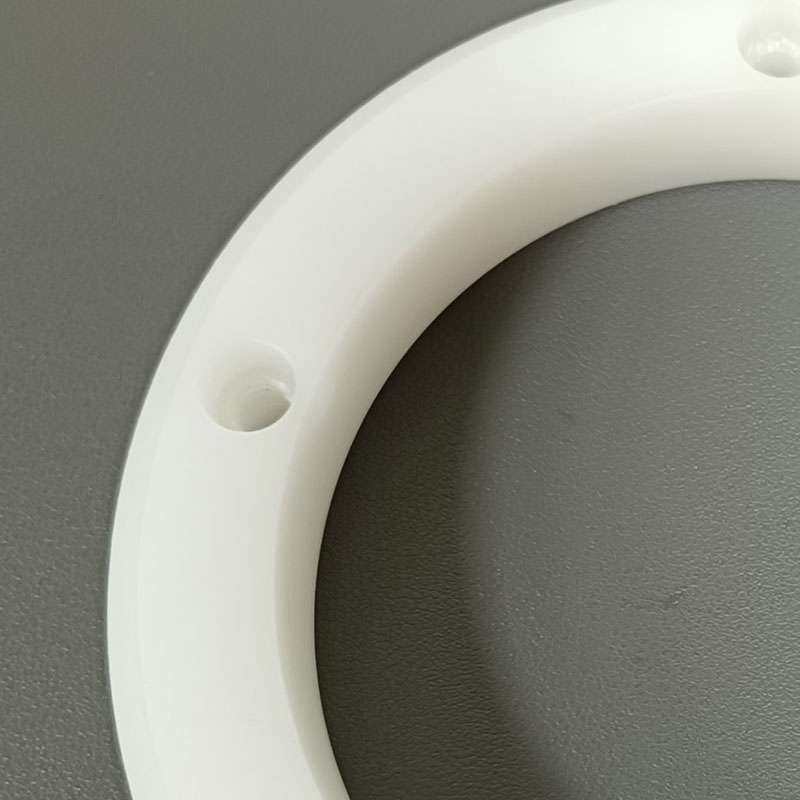
Polypropylene(PP)
A low-cost material with good Stiffness, impact resistance, and chemical stability. PP also offers excellent wear resistance and elasticity.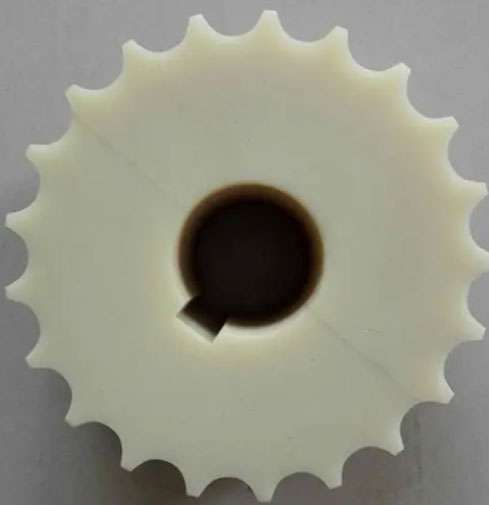
PPSU(Polyphenylene sulfone resins)
PPSU is used in various sectors because of its lightweight, high toughness, excellent impact resistance, high heat resistance, chemical stability, transparent color, and wide operating temperature range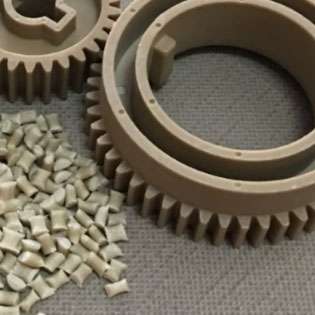
PPS (Polyphenylene)
The unique combination of Physical, mechanical, and chemical properties. Excellent strength, rigidity, fatigue endurance, creep resistance, chemical inertness, and a wide range of working temperatures for the fabricated parts make it a perfect choice for electrical applications with high operating temperatures.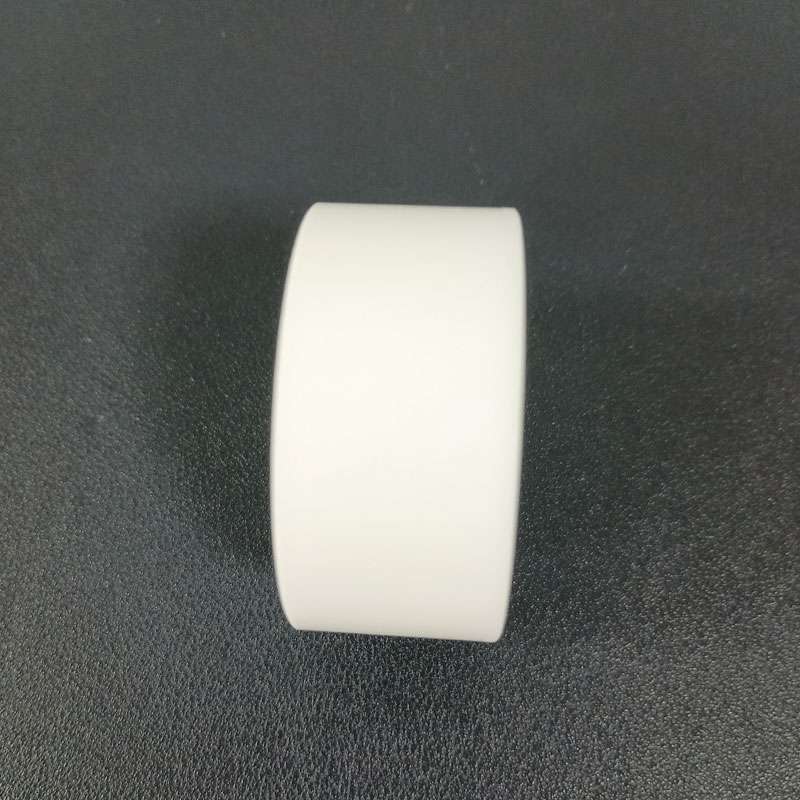
PTFE (Teflon)
High chemical inertness, thermal stability, electrical insulation, and corrosion resistance. Teflon is a low-friction substance that is perfect for making non-sticky and sliding parts for various industries. Learn more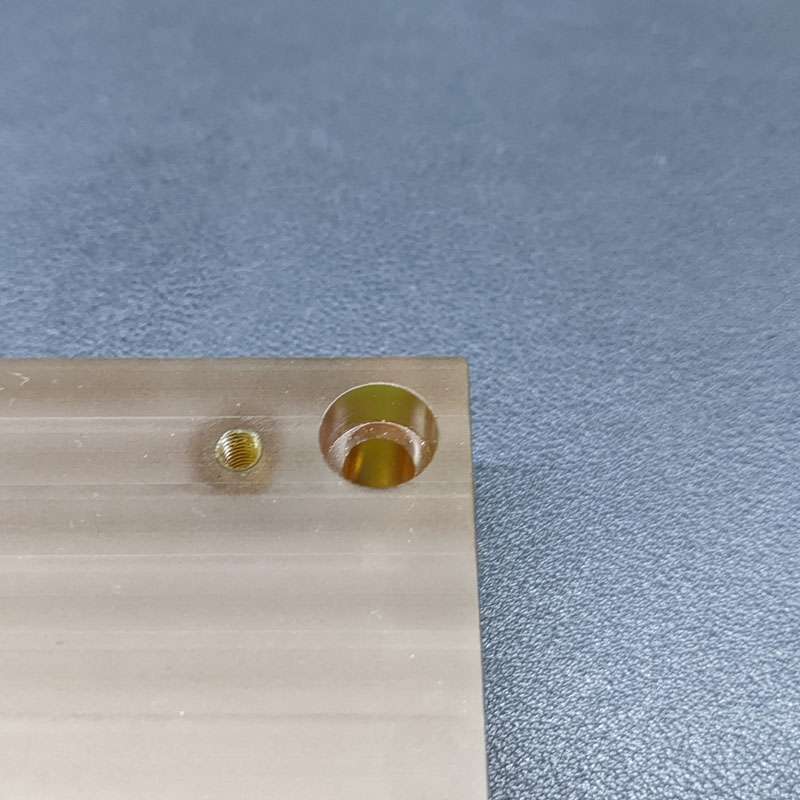
polyetherimide (PEI)
Semi-transparent, high strength, rigidity, thermal stability, chemical inertness, and dimensional stability. Parts made from PEI can work for an extended period without stress cracking.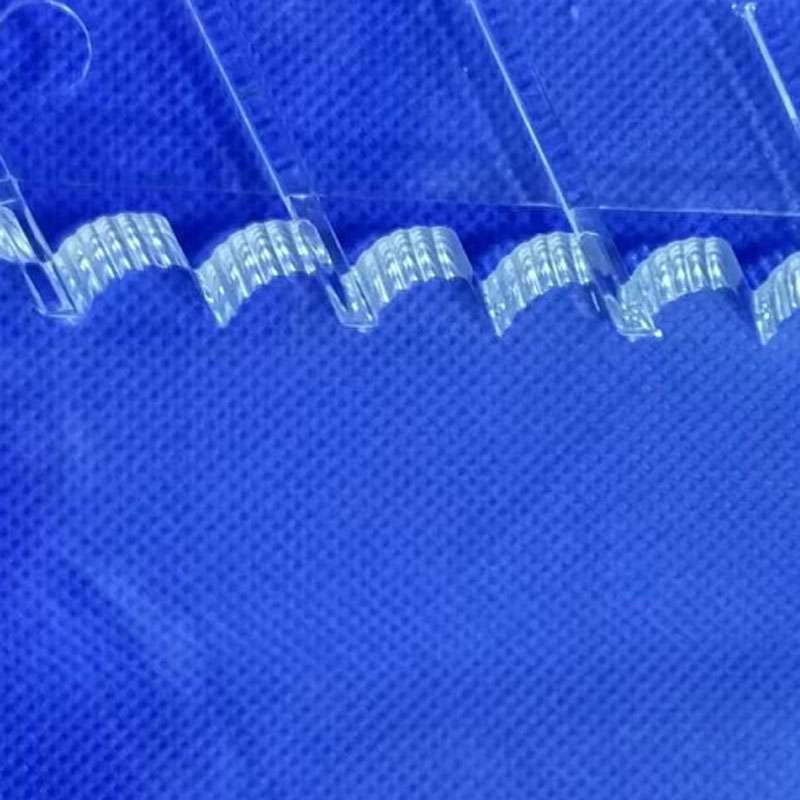
PMMA (Acrylic)
Transparent, lightweight, strong mechanical strength, hardness, thermal stability, and chemical inertness. Transparent nature makes it an excellent alternative to glass.3 Ways to Ensure Perfection
Standards
Metals: ISO-2768 fH (fine)
Plastics: ISO-2768 mK (medium)
Metric threads tolerances: ISO 965-1 standard UN Threads Tolerances: ASME B1.1-2003 standard
Knurling: ISO13444:2012 standard.
Our factory is ISO 9001:2015 certificated
Inspection and Protection
Constant visual inspection conditions
Quantification of cosmetic surface quality
Process requirements
Part cleaning and Protection
Quality Inspection Report
Inspection Confirmation
Dimensional confirmation
Appearance confirmation
Quality documentation
Technology Overview
What is CNC Drilling?
CNC (Computer Numerical Control) Drilling is a widely used subtractive manufacturing technology that involves the use of computers to control machine tools. These machine tools, in the case of CNC drilling, are drills that are used to create holes of different diameters and depths in a variety of materials.
Principle of CNC Drilling
At the core of CNC drilling is a computer-controlled system that directs the drill bit’s movements. The drilling process begins with a digital 3D design of the part, created using CAD (Computer-Aided Design) software. The 3D design is then converted into machine instructions using CAM (Computer-Aided Manufacturing) software. These instructions, or G-codes, control the movement, speed, and positioning of the drill bit.
Advantages of CNC Drilling
CNC Drilling machines can have multiple axes of movement. Most commonly these are 3-axis machines, but there are also 4 and 5-axis machines that offer even more flexibility, allowing the drill bit to approach the workpiece from different angles and in different positions.
One of the key advantages of CNC drilling is its precision. It can achieve very tight tolerances, often as tight as ±0.0005″ (0.0127mm). This high degree of accuracy is consistent across all parts produced, regardless of the production volume.
Another advantage is the ability to drill complex and intricate patterns that would be difficult or impossible to achieve manually. This makes CNC drilling suitable for a wide range of industries, including aerospace, automotive, electronics, medical, and more.
See why customers dig us
Yesterday, I received the parts for my musical instruments. These are incredibly consistent and accurate.
The delivery timing and quality of the CNC machining service amaze me. I would recommend Prolean with my other business friends too. Thank you!
-Ema Alves, Owner at Conserve the Sound
Prolean has been manufacturing numerous customized components for my metal-workshop machines for the past two years, and I have found that they are excellent with their CNC machining services.
I am delighted with the level of quality they offer and the precision of the customized machine parts.
-Mason Lucas, Purchasing manager at Alpha Manufacturing
ProLean has consistently provided me with excellent milling service using their 5-axis CNC machine. I've worked with many contract manufacturers, but other than ProLean, I've never found accurate tolerance on my parts.
We were able to satisfy our client's needs thanks to Prolean's prompt reaction. Additionally, I frequently found that their engineers are always willing to innovate creatively to deliver top-notch service.
-Tanesha Adesina, Technical manager at Bossard Technology
I needed a quick prototype for my research, but I had no idea that their CNC machines were so sophisticated and could produce it in just three days. The prototype was quite precise and fell within the tolerances of the CAD I provided.
Thumbs up! Not just selling, nothing else count for them; Service Service Service, first!
-Jason Barrett, Individual Mechanical Engineer
I have been collaborating with ProLean to produce PCB boards for our business For the last year. Continuous technical assistance and communication with the manufacturing.
Engineers and mechanics help us continuously satisfy our customers' expectations. I hope that this collaboration continues for a very long time.
-Rugen Thakur, Mechanical Engineer at Cipsa- Tech.
The heat sink was marvelous, within the critical tolerance, and the surface finish was excellent. The fan position, seal, and fin structure all performed as intended. I'll tell my friends and other electronics companies about your service.
I appreciate your exceptional communication and CNC-Machining service.
-Blake Henderson, Product Designer at MechaTronix,
It's challenging to describe the Prolean in a few words, but the three stand out: Fantastic, Amazing, and Perfect.
The best addition to our firm has been Prolean. With their cutting-edge 5-axis CNC machine, they are providing the service of replacing and installing new components in our pharmaceutical development industry with accuracy and cleanliness as their top concerns.
-Jose Gaonkar, Mechanical Engineer at Cadila Pharmaceuticals
I purchased several custom CNC-machined parts for mechanical tools from Prolean, and I want to remark that their quality and accuracy were far superior to those of some of the more prominent machine tool manufacturers.
Prolean's engineers could explain everything to me in a language I could comprehend, even though I am not a mechanist and may have asked the wrong questions.
-Evert Wagner, Product Designer at HYDAC Supplier
FAQ
Technical FAQ’s
What tolerances can I expect with CNC drilling?
CNC drilling can achieve very tight tolerances, often as tight as ±0.0005″ (0.0127mm), but this can vary depending on the machine and setup.
Can CNC drilling machines handle all materials?
CNC drilling machines can work with a variety of materials, including metals like aluminum, steel, and copper, as well as non-metals like polymers and composites. However, the specific materials a machine can handle will depend on its capabilities.
What's the difference between 3-axis, 4-axis, and 5-axis CNC drilling?
The difference lies in the number of directions the machine can move the drill bit. A 3-axis machine can move in the X, Y, and Z directions, while a 4-axis machine can also rotate the workpiece around one of these axes, and a 5-axis machine can rotate around two.
What is the typical production time for CNC drilling?
Production times can vary greatly depending on the complexity of the design, the material being used, and the volume of parts being produced. However, CNC drilling is generally faster than manual drilling techniques.
General FAQ’s
Why should I choose CNC drilling over manual drilling?
CNC drilling offers many advantages over manual drilling, including greater precision, the ability to create complex patterns, faster production times, and consistency across all parts produced.
What industries typically use CNC drilling?
Many industries use CNC drilling, including aerospace, automotive, electronics, medical, and more. Any industry that requires precise, consistent holes in a variety of materials can benefit from CNC drilling.
Is CNC drilling cost-effective for small production runs?
While the cost-effectiveness can depend on various factors, generally, CNC drilling can be cost-effective even for small production runs due to the high level of precision and the reduced labor costs.
What types of parts can be made using CNC drilling?
CNC drilling can be used to make a wide variety of parts, from simple plates with a few holes to complex components with intricate drilling patterns. It’s used in the production of everything from electronic enclosures to automotive parts and aerospace components.
Related Blog
CNC Machining Titanium Vs Aluminum: Choose The Best Metal
Aluminum vs Titanium- which metal gives optimal strength and drives the cost of your projects?
Micro CNC Machining: Process, Types, and Advantages
The processes, types, and benefits of Micro CNC Machining.
CNC Machining Titanium Vs. Stainless Steel: Which Gives Quality Parts?
CNC Machining Titanium and stainless steel differences in different aspects.
Get Your Parts Made Today
All uploads are secure and confidential.




